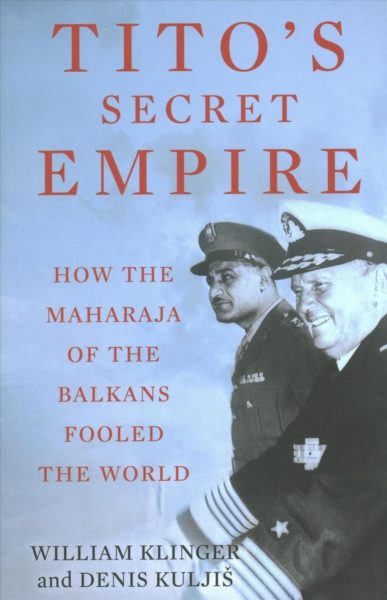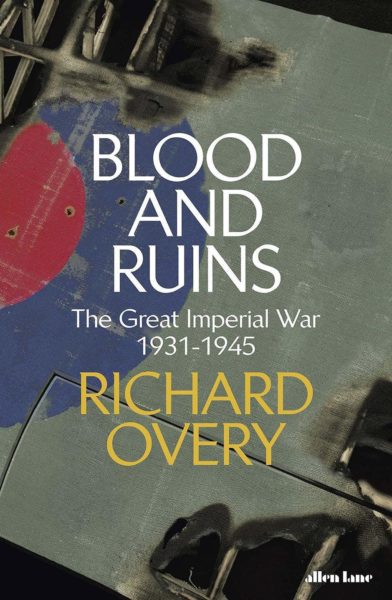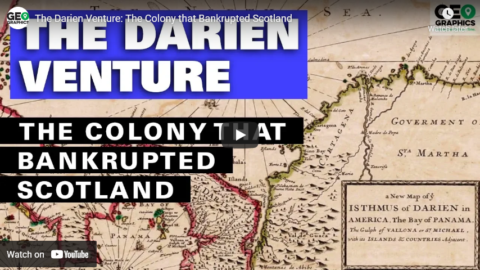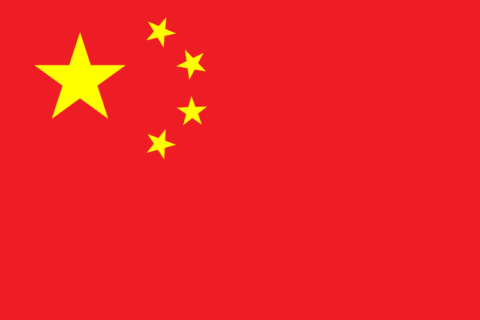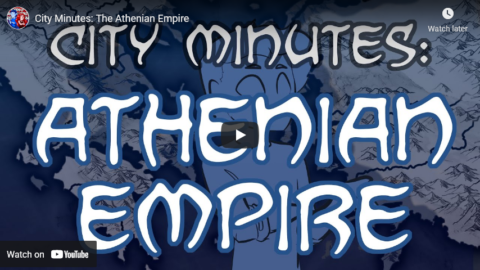The Tank Museum
Published 4 Jun 2021Curator David Willey examines one of Switzerland’s first indigenously designed and produced tanks, the Panzer 61, put into service during the Cold War.
Support the work of The Tank Museum on Patreon: ► https://www.patreon.com/tankmuseum
Visit The Tank Museum SHOP & become a Friend: ►tankmuseumshop.orgTwitter: ► https://twitter.com/TankMuseum
Instagram: ► https://www.instagram.com/tankmuseum/
#tankmuseum #tanks
October 14, 2021
Tank Chats #128 | Panzer 61 | The Tank Museum
QotD: Americans’ perception of foreign economic threats
I am old enough to remember when almost everyone believed that the Russians were, as Khrushchev put it, going to “bury” us. Even leading economists such as Paul Samuelson were taken in by such nonsense. Of course, no such burial occurred, because just producing vast quantities of concrete, steel, and H-bombs is no evidence that anything of genuine value is being produced. Later Japan became the Godzilla that was going to eat the U.S. and European economies with its bureaucratic setup for picking and subsidizing “winners.” Before long that setup too collapsed in a heap and gave way to perpetual stagnation. Now almost everyone quakes in his boots while beholding the mighty Chinese economy. Again the hysteria has no firm foundation. An economy shaped and guided by government bureaucrats and Communist bigwigs by means of tariffs, subsidies, state-controlled credit, and state-owned industries cannot be a real growth miracle for long. This too shall pass.
And when it does Americans will learn nothing from their most recent mistake. If people really understood sound economics, they would not continue to make this same mistake again and again.
Robert Higgs, “China — Americans’ Economic Bugaboo du Jour”, The Beacon, 2018-12-19.
October 13, 2021
Josip Broz Tito — The “Maharaja of the Balkans”
In The Critic, Thomas Gallagher looks at the man and the myth of Yugoslavia’s communist leader, known to the world as “Tito”:
Decades after his death in 1980, Josip Broz Tito still casts a spell as a larger-than-life figure.
The legend portrays him as a famous military leader and anti-fascist guerrilla fighter who fought off the Nazis and defied Stalin. He then went on to be a champion of peace who stood up for various small nations snapping the coils of European overlordship. He was at home on imperial estates or, more often, on his secluded luxury home on the island of Brioni, with Old Masters adorning his walls and kings, emperors and fellow communist strongmen paying homage.
Despite clumsy language and hyperbole in places, as well as some avoidable errors, Tito’s Secret Empire seeks to debunk Tito’s legend and in several key respects it succeeds. The authors William Klinger and Dennis Kuljiš accord some honours to their subject.
He was a unique character well-equipped to surmount various obstacles during his 88-year life. For the British diplomat, Sir Fitzroy Maclean, he was “a fail-proof survivor”. In 1974 he was hailed by Germany’s Chancellor, Helmut Schmidt, as “the greatest of the winners of the Second World War”.
A benign image persisted, despite Tito being responsible for more acts of mass cruelty than any other European communist leader with the exception of the Soviets. He was admired as a wheeler-dealer in international affairs, from murky transactions to the most delicate undertakings in statecraft. This well-researched book deserves attention for those who wish to peer beyond the carefully cultivated image.
[…]
His 1954 state visit to then-royalist Greece, a regime which he had spent years trying to topple, was an unmistakable indication that he was placing himself at the head of a hybrid regime. Britain’s foreign secretary, Anthony Eden, had already visited him and urged the United States to prop up Tito financially. The favour was not returned. Evidence is provided that Tito played a major role in encouraging Egypt to nationalise the Suez Canal. He saw President Nasser as a kindred spirit, a populist unencumbered by ideology. Tito even more keenly sought to end French rule in Algeria, arming the rebels and offering diplomatic support.
In September 1961, he welcomed dozens of leaders from the promising new “non-aligned” bloc to a conference in Belgrade. Next year China invaded India and his soul-mate, Nehru, turned to the West for help. Thereafter, the non-aligned movement’s influence waned, as did Tito’s with it.
He increasingly became a pensioner of the Soviet Union. American ardour cooled as it became clear how reliant he was on Soviet arms and industrial licences which enabled this supposed ambassador of peace to export weapons to the Third World.
A War Without Hate? – The Officers and Gentlemen of North Africa – WW2 – Gallery 05
World War Two
Published 12 Oct 2021In the history of European-style warfare, there has always been the ideal of “rules of warfare”. The horrors of the Eastern Front and the Pacific prove how hollow this ideal can be, but there is one theatre where some officers are trying to maintain it: North Africa.
(more…)
Elitist scorn for “dollar” stores
Laura Williams uses the often-debunked tale of Marie Antoinette telling the poor of Paris to eat cake to illustrate a very real present-day issue of local governments trying to limit or even eliminate low-cost retail options in poor areas of their municipalities:

“Family Dollar Store” by JeepersMedia is licensed under CC BY 2.0
Sixty-two percent of adults surveyed by brand intelligence firm Morning Consult say Dollar Tree “has a positive effect on my community” (compared to 51 percent for Starbucks and 59 percent for Target).
People who can afford more choices — driving out to a big-box store, buying in bulk, ordering online, patronizing a farmer’s market — simply can’t see the perspective of someone for whom the dollar store is the most practical option.
[…]
Opponents of dollar stores often contradict each other or even themselves.
Critics objected when suburban growth sent stores running for whiter, more affluent suburbs. But dollar stores’ explicit attempts to reverse this trend — to set up affordable retail options in poorer, underserved neighborhoods — are somehow also the target of scorn.
You’ll also hear critics claim dollar stores engage in “predatory” behavior by offering prices that are simultaneously too low (undercutting potential competitors) and also too high (as compared to a per-unit cost at the Costco 15 miles away).
Haters complain retail jobs offered by dollar stores are “low quality and low-wage” but also that dollar stores don’t create enough of these low-quality, undesirable jobs. One is reminded of the Woody Allen line complaining about a restaurant’s “terrible food … and such small portions!”
A Tulsa councilwoman begrudgingly confirmed that dollar retailers offer essentials like toothpaste and school supplies, bread and eggs, in areas where supermarkets “have consistently failed”. Why this is condemnable, rather than laudable, she does not explain.
With backward economic thinking, CNN claimed dollar stores “limit poor communities’ access to healthy food,” blaming low-cost retailers for the gaps they try to fill.
Bans on walkable, ultra-affordable stores do nothing to increase the availability of fresh food; they merely stamp out the only existing option.
500 Year Old Apple & Cheese Pie
Tasting History with Max Miller
Published 12 Oct 2021Use my exclusive link here https://cen.yt/TradeTastingHistory4 to get your first bag from Trade Coffee for free.
Support the Channel with Patreon ► https://www.patreon.com/tastinghistory
Merch ► crowdmade.com/collections/tastinghistory
Instagram ► https://www.instagram.com/tastinghist…
Twitter ► https://twitter.com/TastingHistory1
Tiktok ► TastingHistory
Reddit ► r/TastingHistory
Discord ► https://discord.gg/d7nbEpy
Amazon Wish List ► https://amzn.to/3i0mwGtSend mail to:
Tasting History
PO Box 766
Burbank, CA 91503LINKS TO INGREDIENTS & EQUIPMENT**
Sony Alpha 7C Camera: https://amzn.to/2MQbNTK
Sigma 24-70mm f/2.8 Lens: https://amzn.to/35tjyoW
Emile Henry Pie Dish: https://amzn.to/3i5go19LINKS TO SOURCES**
Apple – A Global History by Erika Janik: https://amzn.to/3COmCui
Diary of Samuel Sewall: https://amzn.to/3AKDj9j
The Life and Repentance of Samuel Sewall by Eve LaPlante: https://amzn.to/3EUBUiU
Das Kochbuch der Sabina Welserin: http://www.daviddfriedman.com/Medieva…**Some of the links and other products that appear on this video are from companies which Tasting History will earn an affiliate commission or referral bonus. Each purchase made from these links will help to support this channel with no additional cost to you. The content in this video is accurate as of the posting date. Some of the offers mentioned may no longer be available.
Subtitles: Jose Mendoza | IG @worldagainstjose
PHOTOS
Tarte tatin: Loslazos, CC BY-SA 4.0 https://creativecommons.org/licenses/…, via Wikimedia Commons#tastinghistory #applepie
QotD: The POW/MIA theories from the post-Vietnam War era
… there are lots of cases where “the narrative” — the method of organizing disparate facts for easy transmission and digestion — becomes The Narrative, all caps, the conspirazoid stuff. Al from da Nort brought up the POW/MIA thing from the Vietnam War, which is a great example. […] back in the 1980s The Narrative (note the capital letters) was that the Vietnamese government was still holding American prisoners of war for some reason.
It routinely showed up on the “news magazine” shows, and of course there were whole series of movies about it: The Missing in Action flicks with Chuck Norris, Rambo II, I’m sure I’m forgetting a few. And though the “firsthand testimony” for this thesis was always of the “somebody knew somebody who heard from somebody that Lt. Smith suddenly disappeared from a POW camp back in 1968,” there was one seemingly strong piece of archival evidence: The seemingly disproportionate number of soldiers and airmen officially listed as “missing in action”.
And yet … c’mon, man, as a guy who dodged that war probably said back when he could still remember what century he’s living in. Why would the Vietnamese do that? All the mooted explanations — slave labor, selling captured pilots to the Russians for training purposes — didn’t pass the smell test. So a historian started digging into it, and while I read MIA: Mythmaking in America 30 years ago in college, I remember the crux of his argument:
In the war’s early days, the military used a statistic called KIA/BNR — killed in action / body not recovered. Everyone knows Lt. Smith is dead, but since his aircraft was vaporized by a SAM over Haiphong, his remains can’t be returned to his people. As Al notes, though, when a pilot was killed in action, his wife and kids got a puny condolence check from the government and kicked out of base housing. Thus the surviving pilots, acting from noble motives, started fudging. “Well … maybe Lt. Smith’s plane wasn’t vaporized. I might’ve seen a chute. It’s all very confusing; remember I was going Mach 1 at the time, dodging flak …” Mrs. Smith and the little Smiths get to keep drawing a paycheck, keep living on base housing, etc. So the official MIA list grew.
Enter Richard Nixon and that sneaky rat fuck Kissinger. Needing a way to prolong the war while concluding “peace with honor” — that is, to weasel out without seeming too weaselly — they needed a sticking point at the treaty table. The MIA issue was perfect for that. What about Lt. Smith? Of course the Vietnamese government can’t account for him; he was blown to atoms over Haiphong; but there’s his name on the missing list. Perhaps he’s in double secret prison!
And thus “the narrative” — the perfectly understandable-in-context lie that changed KIA/BNR to MIA — became “The Narrative”, that the Vietnamese were, for some unfathomable reason, still hanging on to captured American servicemen. Who knows why those inscrutable Orientals do anything, and what kind of America-hating hippie scum are you to ask questions? Don’t you want to bring our boys back home?
Severian, “Kayfabe”, Rotten Chestnuts, 2021-07-04.
October 12, 2021
Richard Overy looks at the “Great Imperial War” of 1931-1945
I missed Rana Mitter‘s review of Richard Overy’s latest book when it was published in The Critic last week:
Imagine there’s no Hitler. It’s not that easy, even if you try, at least if you’re a westerner thinking about the Second World War. But for millions of Asians, those years of conflict had little to do with the horrors of Nazi invasion and genocide, and it is their experience that frames Richard Overy’s account of a seemingly familiar conflict. For most non-Europeans, the war was not a struggle for democracy, but a conflict between empires, and in this book, that imperial struggle begins not with the invasion of Poland by Germany in 1939 but the occupation of Manchuria by the Japanese in 1931.
Blood and Ruins is really two books in one. The first is perhaps the single most comprehensive account of the Second World War yet to appear in one volume. You might think that by reading extensively, you could construct a book like this one. You could not — unless you have Overy’s control over a staggering range of World War II scholarship, much of it drawn from his own decades of research on the economics of total warfare, the development of technology, from radar to aerial bombing, and the idea of the “emotional geography” of war, encompassing morale, hope, and despair. Then you’d need to go back and cover all those categories for each of the major Allied and Axis belligerents: Britain, the US, Japan, Germany, France, Italy and China among them.
The second book is an argument about what kind of conflict the Second World War really was. Overy is clear: on a global as opposed to European scale, it was not (just) a war about democracy, but about empires and their fate, although “the starting point in explaining the pursuit of territorial empire is, paradoxically, the nation.”
Overy points out what is generally lost to view when the European war is placed at the centre of the historiography: both Britain and France were undertaking an “awkward double standard” in their defence of democratic values, as their Asian and African possessions “rested on a denial of those liberties and the repression of any protest against the undemocratic nature of colonial rule”. While this argument has been made before (not least by figures such as Nehru and Gandhi in India at the time), Overy does something unusual and revealing: he compares the western empires with Japan’s justification for its own imperial project in the early twentieth century.
The book is scrupulously careful not to endorse or excuse the worldview of Tokyo’s imperialists, and gives full weight to the voices of the Chinese nationalists and communists who were bitterly opposed to Japan’s expansion on the Asian mainland. Still, the comparison of Japan’s pre-war and wartime empire to those of the western powers provides an important and original broadening of a contemporary debate.
There is ongoing public British (and to some extent French) argument about whether empire was a “good” or “bad” thing. Yet neither attackers nor defenders of the British empire tend to analyse it alongside the Japanese equivalent that lasted nearly half a century. Britain committed colonial massacres (Amritsar) and deadly repression (Mau Mau). So did Japan (the rape of Nanjing, invasion of Manchuria).
Britain’s empire also created an aspirational middle class full of cosmopolitan nationalists, and drew on ideas of loyalty to recruit its subjects to fight in world wars. All these things are also true of Japan, which like Britain was a multi-party democracy for much of its period as an overseas empire (between 1898 and 1932), and whose capital city was an intellectual hub for political activists from across Asia.
As a colony of Japan between 1895-1945, Taiwan developed a middle class that was Japanese-speaking and keen to draw on new economic opportunities brought by empire: Lee Teng-hui, the first democratically elected president of the Republic of China on Taiwan, always thought of Japanese as his mother tongue. Park Chung-hee, the American-sponsored dictator of Cold War South Korea, learned his political craft as an army officer in the Japanese Manchukuo Army that occupied Manchuria.
Worthless Paper Money – German Hyper-Inflation Starts After WW1 I THE GREAT WAR 1921
The Great War
Published 8 Oct 2021Sign up for Curiosity Stream and get Nebula bundled in and SAVE 26%: https://curiositystream.com/thegreatwar
The German post-WW1 economy was under pressure: the loss of territory, the war bonds issued during the war and the reparations under the Treaty of Versailles. All this lead to a downward spiral of rising inflation and living costs for German citizens.
» SUPPORT THE CHANNEL
Patreon: https://www.patreon.com/thegreatwar
Shop: https://www.realtimehistory.net» OUR PODCAST
https://realtimehistory.net/podcast – interviews with World War 1 historians and background info for the show.» BUY OUR SOURCES IN OUR AMAZON STORES
https://realtimehistory.net/amazon *
*Buying via this link supports The Great War (Affiliate-Link)» SOURCES
Feldman, Gerald: Vom Weltkrieg zur Weltwirtschaftskrise. Studien zur deutschen Wirtschafts-und Sozialgeschichte 1914-1932. 1984.Fergusson, Adam: Das Ende des Geldes. Hyperinflation und ihre Folgen für die Menschen am Beispiel der Weimarer Republik, 1975.
Grosch, Waldemar: Deutsche und polnische Propaganda während der Volksabstimmung in Oberschlesien 1919-1921. 2002.
Lewek, Peter: Arbeitslosigkeit und Arbeitslosenversicherung in der Weimarer republik 1918-1927. 1989.
Michalczyk, Andrezej: Celebrating the nation: the case of Upper Silesia after the plebiscite in 1921.
Neubach, Helmut: Die Abstimmung in Oberschlesien am 20. März 1921. 2002.
» MORE THE GREAT WAR
Website: https://realtimehistory.net
Instagram: https://instagram.com/the_great_war
Twitter: https://twitter.com/WW1_Series
Reddit: https://reddit.com/r/TheGreatWarChannel»CREDITS
Presented by: Jesse Alexander
Written by: Jesse Alexander
Director: Toni Steller & Florian Wittig
Director of Photography: Toni Steller
Sound: Toni Steller
Editing: Jose Gamez
Motion Design: Philipp Appelt
Mixing, Mastering & Sound Design: http://above-zero.com
Maps: Daniel Kogosov (https://www.patreon.com/Zalezsky)
Research by: Jesse Alexander
Fact checking: Florian WittigChannel Design: Yves Thimian
Contains licensed material by getty images
All rights reserved – Real Time History GmbH 2021
The Southwest canary in the coal mine?
Jim Treacher wonders, based reactions from the self-imagined elites, if they consider airline pilots to be slaves now:
I’m one of the pesky minority of Americans who are both pro-vaccine and against vaccine mandates. The evidence overwhelmingly proves that these vaccines are effective against the coronavirus, and I will continue to encourage everyone to get vaccinated. And, also, in addition to that, vaccine mandates are not only un-American but counterproductive. In addition to all the other dishonest, lame-brained, self-negating messaging we’ve heard during this pandemic, telling Americans what to do just doesn’t work. That’s not how we’re built.
And just on principle, vaccination is your decision as an individual. That’s how it’s supposed to work in this country. This is still a republic, if you can keep it.
Which is why it’s interesting that now this is happening:
Southwest is the only airline cancelling so many flights. Is that because the employees, including the pilots who are needed to fly the planes, are refusing to comply with the company’s new vaccine mandate?
The airline is saying otherwise:
“Disruptive weather”? Wouldn’t that affect all the airlines, not just one?
In any case, the smart fellers seem to think it’s about the vaccine. And they ain’t happy:
Oh, is that how it works? Those pilots are no longer individual human beings, with individual thoughts and opinions? They must subsume themselves into the corporation? The government throws money at everything in sight, and therefore all that stuff is owned by the government? All those people are owned by the government?
And these clowns call us fascists?
Airline pilots aren’t slaves. If they don’t want to work because of an employer’s mandate, that’s between them and the employer. If they get fired, that’s their problem. But nobody owns them, let alone entitled @$$holes like Andrew Ross Sorkin.
Of course, you can always trust The Babylon Bee (America’s Most Trusted News Source™) to get to the heart of the matter:
Pesto — You Suck At Cooking, episode 73
You Suck At Cooking
Published 28 Mar 2018The YSAC Cook Book is now available: http://hyperurl.co/yousuckatcooking
Pesto. It’s the besto.
http://instagram.com/yousuckatcooking
https://twitter.com/yousuckatcookin
Snapchat: @yousuckatcookin2 cups basil
Half cup olive oil
half cup parmesan
couple spoonfuls of pine nuts (you can use walnuts if you want)
a clove or two or garlic
a squeeze of lemon
you can salt it a bit more if the parmesan hasn’t done the trick
QotD: Titus Livius, better known as Livy
Livy’s life (roughly 59 BC to about 17 AD) spanned the most consequential period in the thousand-year history of ancient Rome. He witnessed the last decades of the crumbling old Republic and the rise in its place of the imperial autocracy we know as the Roman Empire. He was in his early twenties when the last great defender of the republican heritage, Cicero, was assassinated by a henchman of the tyrant Marc Antony. Livy observed the entirety of the reign of the first Emperor, Augustus. He is best known for his history of Rome, Ab Urbe Condita, described both in his day and in ours with such terms as “monumental” and “magisterial”.
What little we know of the man himself suggests he was somehow financially well-off, independent, and reclusive. He was schooled in rhetoric, philosophy, and history. He never served in any public position, though apparently, he personally knew Augustus. Writing his massive history of Rome absorbed his adult life.
Though Romans at the time of his writing held his work in high regard, we know that some parts of Livy’s historical accounts were surely based on minimal records, old and dubious oral stories, and even legend. After all, he wrote 2,000 years ago about people and events of as much as eight centuries before his time. “I hope my passion for Rome’s past has not impaired my judgment,” he opined in his introduction to Ab Urbe Condita, “for I do honestly believe that no country has ever been greater or purer than ours or richer in good citizens and noble deeds.”
“The old Romans,” wrote Livy of his countrymen before the beginning of the Republic, “all wished to have a king over them because they had not yet tasted the sweetness of freedom.” But then in 508 BC, Romans mounted a truly historic revolution of both ideas and governance. They overthrew the monarchy and established a new order that ultimately included a Senate of nobles, popularly elected Assemblies, the dispersion of centralized power, term limits, a constitution, due process, habeas corpus, and the widest practice of individual liberty the world had yet seen. Before they lost it all less than five centuries later, they experienced a remarkable rise and fall. […]
From Livy, we learn about Rome’s pivotal wars against the Carthaginians, the Samnites, and other peoples of the Italian Peninsula. He also informs us of the rivalry between Sulla and Marius, the tumultuous last days of the Republic as strong men fought each other for power, the murder of Julius Caesar, and the self-serving machinations of Augustus. Livy celebrated the courage of his ancestors; in fact, he originated the phrase, “Fortune favors the brave,” which is still used commonly today as a maxim and a motto.
Lawrence W. Reed, “Lessons from Livy on How Great Civilizations Rise and Fall”, Foundation for Economic Education, 2021-06-28.
October 11, 2021
The Darien Venture: The Colony that Bankrupted Scotland
Geographics
Published 14 Nov 2019If a Nation’s wealth and power were to be measured in stubbornness, resilience, and inventiveness, rather than GDP, Scotland would be a top-5 superpower. The people that brought to you televisions, refrigerators, penicillin, and gin & tonic have gone through many a rough patch throughout their history. Very often, hard times were related to their rocky relationship with their Southern neighbours, the English.
Credits:
Host – Simon Whistler
Author – Arnaldo Teodorani
Producer – Jennifer Da Silva
Executive Producer – Shell HarrisBusiness inquiries to admin@toptenz.net
The Line responds to charges that their reporting on China is “anti-Asian racism”
As an impoverished cheapskate, I can’t afford to subscribe to The Line‘s full service, but they do allow a sub-set of their work to appear to non-paying subscribers, like this response to a former subscriber who accused them of “anti-Asian racism” in their posts involving the People’s Republic of China:
China’s emergence as a global power is going to be one of the defining stories of the first half of the 21st century. We probably aren’t reading and writing about it enough. Late this week, however, we received a note from a now-former reader, who said that the pieces we had run, and the overall focus on China, reflected anti-Asian racism, and they would not be supporting us going forward.
Look, it’s your money, folks. We want more and more of you to subscribe all the time. But we certainly respect your right to decline, or to unsubscribe if you don’t like the offerings. However, we do have a word of reply to those who would suggest that publishing articles about China is racist: get bent.
There is indeed anti-Asian racism out there. We have seen a lot of disturbing signs of it during the COVID-19 pandemic, when Asians of any description have been subjected to harassment and even random acts of violence. In the United States, some of the more fiery anti-Chinese rhetoric favoured by the former president also undoubtedly contributed to that wave, and that has spilled over here. Further, the problem of anti-Asian racism of course isn’t new. We have a long history of anti-Asian discrimination in North America. This must be acknowledged. Anti-Asian hate was real before Trump and COVID, and it’ll remain long after both are finished.
But writing critically about the People’s Republic of China, the Chinese Communist Party, the Chinese armed forces, the policies of the Chinese government, the actions of the Chinese government, and the increasingly overt meddling in the affairs of other nations by Chinese intelligence operations, does not reflect any discredit upon Asian-Canadians, or any Asian in general. The policies of the Chinese government are exactly that: policies of a government. Criticizing policies and governments is not just acceptable, it’s absolutely necessary.
Indeed, we noted with grim amusement during a recent conversation with a colleague, who is comfortably nestled within the left-leaning progressive side of Canada’s political spectrum, that progressives in particular ought to be 100 per cent comfortable criticizing Chinese government policy. After all, progressives have been loudly and correctly noting for generations that there is a difference between rank antisemitism and warranted criticism of Israeli government policy. We find it fascinating that some of the very same people who would be horrified to be accused of antisemitism for criticizing Israel get tongue-tied when the Chinese government starts throwing religious minority women into rape camps.
We suspect some of it is simply rooted in the rampant identitarian obsessions of Western political discourse. People who criticize white supremacist Western imperialism a dozen times before breakfast might find it intellectually discombobulating to acknowledge that Western liberal democracies are not the only big baddies on the global stage. We’ve witnessed the many mental gymnastics that have been deployed to minimize or wish away credible reports of genocide and concentration camps, as if they were merely a Western fantasy being used to concoct a pretext for war. This is an ahistoric argument, by the way. The West has not been angling for war with one of its most lucrative suppliers and customers, quite the opposite. Until recently, we’ve operated under a Fukuyama delusion: the ironclad belief that China would moderate and liberalize as it grew more prosperous. This was predicated on the arrogant assumption that the liberal democratic West was the end state of history and that China would eventually meet us here, thus allowing peace and profit for all. That optimism hasn’t panned out, and many Western countries — Canada among them — have spent the last few years trying to reconcile our economic interdependence with our collective “oh shit” epiphany.
City Minutes: The Athenian Empire
Overly Sarcastic Productions
Published 25 Jun 2021Deja Vu? Only slightly! I’m re-imaging City Minutes, and this time the plan is to *Actually Make It Good*! With MULTIPLE CITIES per episode, and HORIZONTAL VIDEO!
I heard your feedback on the first run of the shorts loud and clear — City Minutes Good, Shorts Bad — so this will be the format going forward: networks of cities, with each getting a minute of spotlight.
We’re starting where I always start, in ancient Athens (I wanted to give you the proper version of the pilot), but we’ve got tons of other City Minutes planned!
SOURCES & Further Reading: Thucydides History of the Peloponnesian War, World History Encyclopedia (https://www.worldhistory.org/Athens): “Athens”, “Piraeus”, “Sounion”, “Delos”, “Corcyra”, “The Delian League” parts 3 & 4, and my degree in Classical Studies
Cities by timestamp:
00:00 — Athens
1:00 — Piraeus
2:01 — Sounion
3:03 — Delos
4:05 — Mytilene
5:03 — Korkyra
6:03 — ConclusionOur content is intended for teenage audiences and up.
PATREON: https://www.Patreon.com/OSP
PODCAST: https://overlysarcasticpodcast.transi…
DISCORD: https://discord.gg/osp
MERCH LINKS: http://rdbl.co/osp
OUR WEBSITE: https://www.OverlySarcasticProductions.com
Find us on Twitter https://www.Twitter.com/OSPYouTube
Find us on Reddit https://www.Reddit.com/r/OSP/
From the comments:
Overly Sarcastic Productions
43 minutes ago
Fun linguistic shenanigans: The island of Korkyra (commonly spelled Corcyra when referring to the ancient city) is known today as both Kerkyra and Corfu. The name Corfu comes from an Italianized version of the Byzantine name Korufo.I use the pronunciation of “Korkyra” with an O because it reflects the more common version of the name as listed in ancient accounts — adherence to the original ancient version is also why I’m using Ks in place of any Latinized Cs.
Essentially: I’m spelling everything the ancient way, but using modern Greek phonetics to sound out those words. It’s an uncommon way to go about, but it feels like the right balance of ancient authenticity and modern linguistic continuity.
-B


